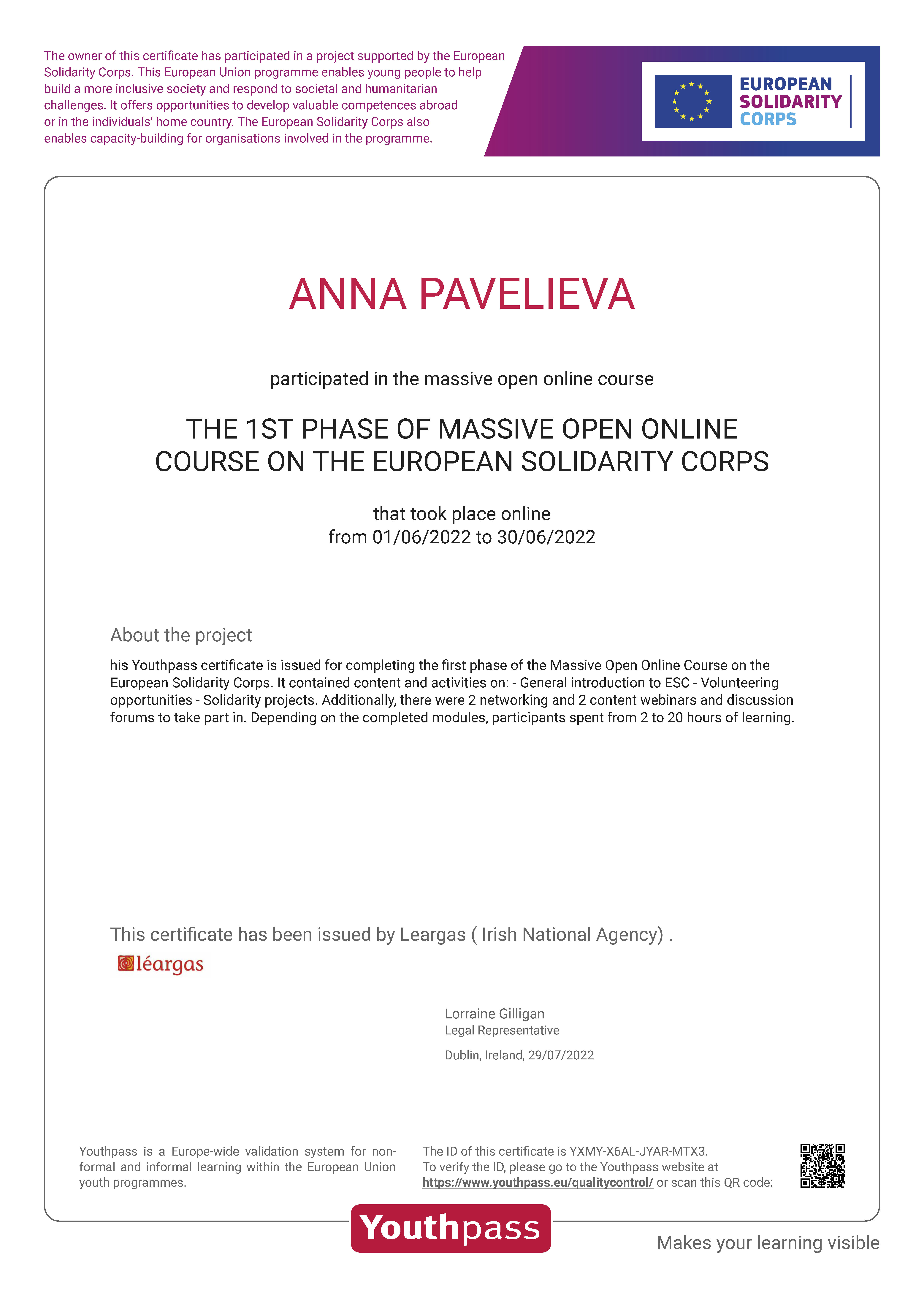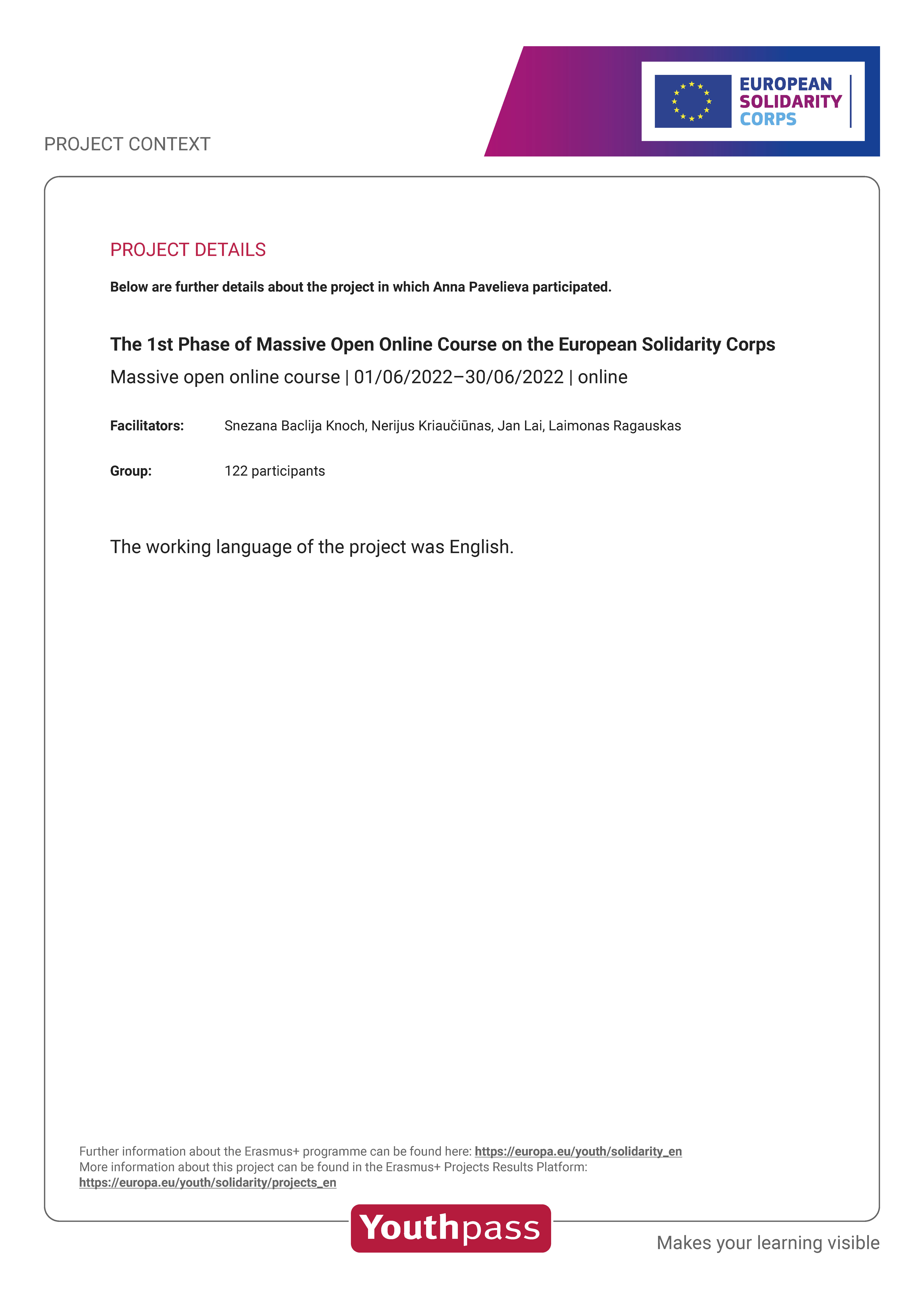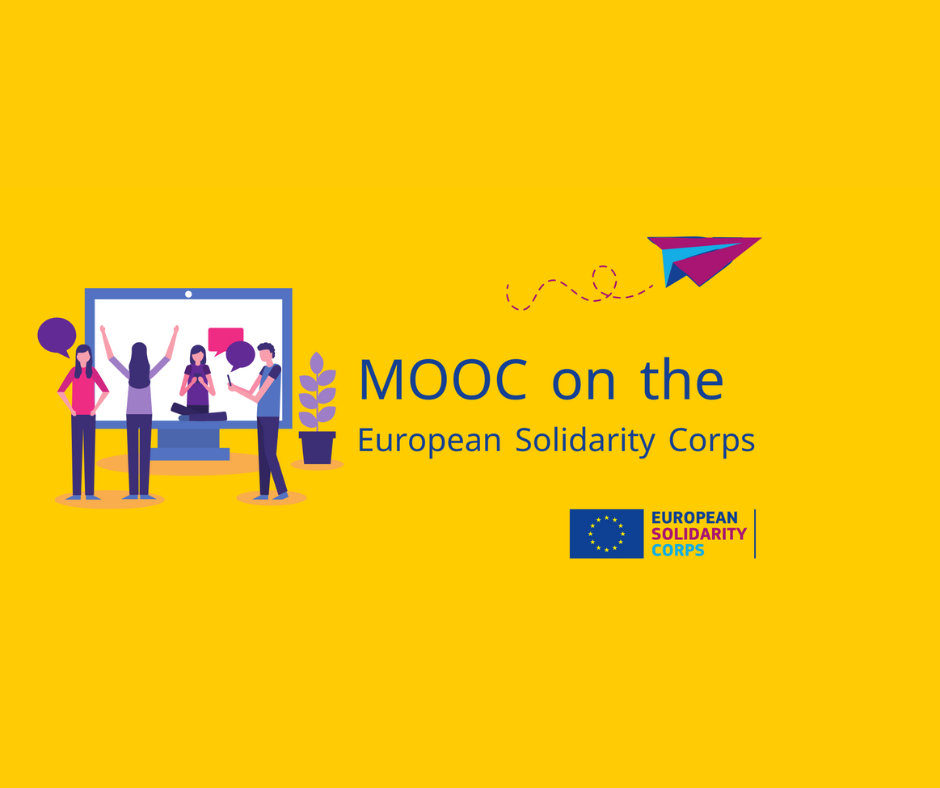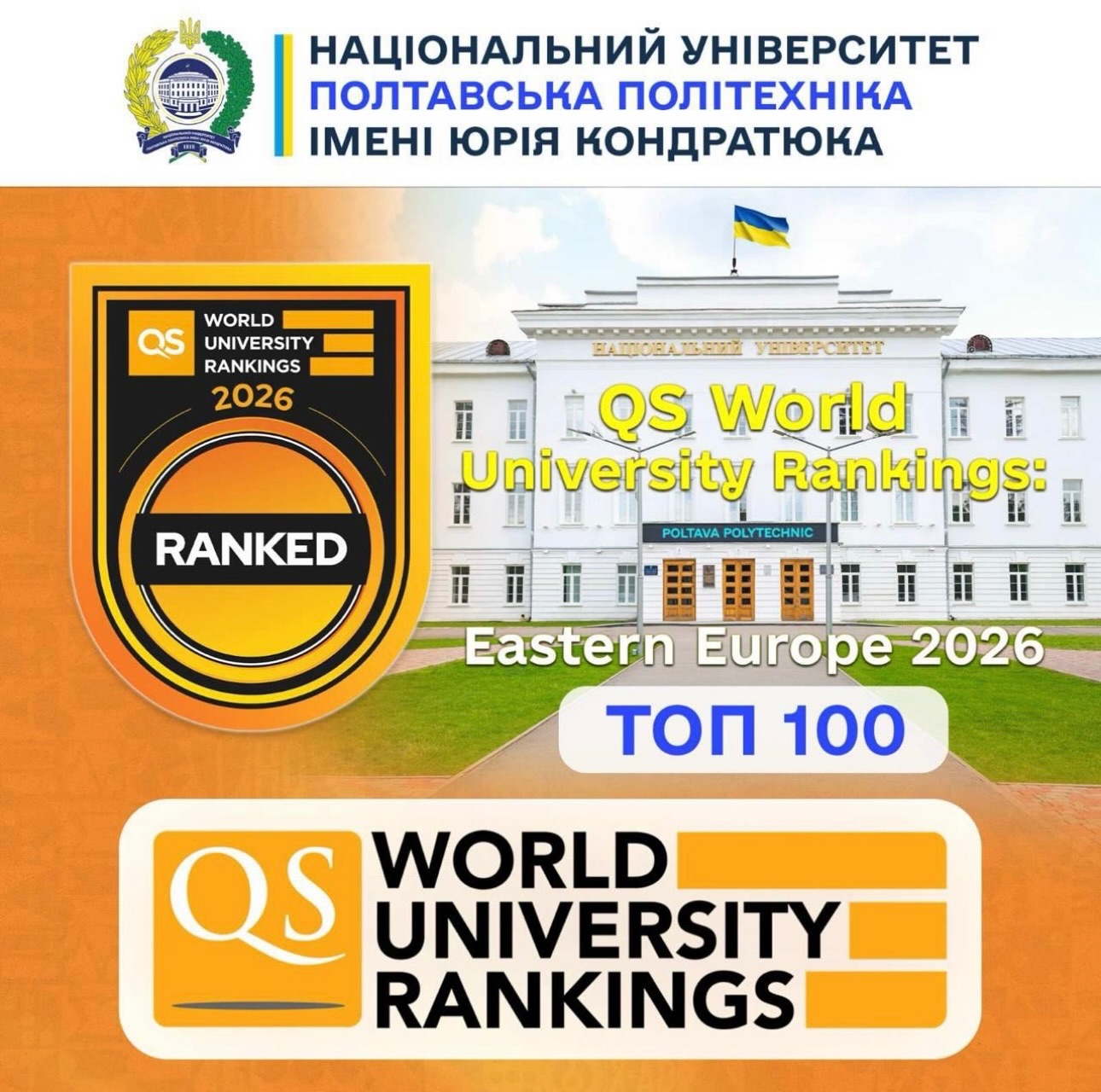For several months, the head of the Council of Young Scientists of the Faculty of Philology, Psychology and Pedagogy of the National University “Yuri Kondratyuk Poltava Polytechnic” – Candidate of Philological Sciences, Associate Professor of the Department of Germanic Philology and Translation, Anna Pavelieva, together with 122 participants from different countries of the world, studied the possibilities and advantages of volunteer programs of the European of the Solidarity Corps (ESC) as part of the “MOOC on the European Solidarity Corps” course. The scientist attended all the webinars, successfully completed the tasks on the platform and received certificates for completing the first part of the project. Anna Pavelieva is currently continuing her studies in the second part of the course. It is important to note the fact that the Poltava Polytechnic teacher became the only participant of the educational course from Ukraine.


The course consisted of two parts – practical tasks on the MOOC Hop platform and interactive webinars on the Zoom platform. Course participants also had the opportunity to chat and exchange contacts during the networking webinar.
The course “MOOC on the European Solidarity Corps” was aimed at revealing the fundamental principles, formats and practices of volunteer projects within the framework of the European Solidarity Corps (ESC) program, using the examples of volunteer organizations and volunteers from the EU, who shared their own successful experience of implementing various projects dedicated to current issues of inclusion, tolerance, multiculturalism, etc. Several webinars were held with the participation of European non-governmental organizations – permanent participants of the ESC programs, who shared their own experience in the development and implementation of projects. Speakers told how to get a certificate that allows an educational institution or public organization to participate in ESC programs and explained how to correctly fill out and submit applications for participation in such projects, etc.
The online course on the platform consisted of 5 modules, in which participants learned the basics of the concept of solidarity in the field of European youth work; received a general overview of the European Solidarity Corps program, its goals and objectives and specific actions; learned where to find more information about ESC; got acquainted with some examples of good practice in the context of Corps programs.
Much attention was paid to the role of the “4Thought” project in the establishment of the ESC, the concept of “solidarity” and its multiple meanings, the structure of the ESC programs (mission and vision of the program, organizations and participants, quality principles and standards, roles and functions, the importance of the participation of people with disabilities in program, expected results, etc.), sustainable development, inclusion and dissemination of European values as key goals of ESC programs.
Participants watched a webinar by researcher Justina Garbauskaitė on the impact of civil society on mobility projects, an interview with Clair Brown on inclusion in ESC projects and video stories of successful ESC volunteer programs “Budapest Bike Mafia” (Hungary), “Grenzenlos without Barriers” (Austria ), “Let’s Act” (Germany), “In Pursuit of a Sustainable World” (Croatia), “It’s OK not to be OK!” (Ireland).
A separate webinar was dedicated to volunteering and providing humanitarian aid during the war and the experience of European public organizations and activists helping Ukrainians fleeing the war.
The combination of online meetings and performance of practical tasks as well as passing tests on the platform contributed to better assimilation of the material and gave the course participants the opportunity to meet and communicate in real time and discuss volunteering aimed at helping refugees from Ukraine. Participants from other countries expressed their support for Ukraine and Ukrainians.
Course participants who attended all webinars and completed all tasks on the platform received certificates of completion of the first part of the project, the second part, in which scientist Anna Pavelieva also participates, began at the beginning of September and will also last for several months.
The volunteer programme from Erasmus+ ESC (European Solidarity Corps) allows all young people aged 17 to 30 to do international volunteering in organizations or government bodies in Europe, Africa, Asia or South America for a period of 2 to 12 months. The advantages of the programme are a unique opportunity to gain practical work experience, to get to know local residents, their culture, traditions, to immerse oneself in a new language environment, which will allow one to improve one’s foreign language skills and soft skills.
At the end of the project, participants are given a certificate confirming completion of the European Solidarity Corps program. ESC programs are fully funded: participants are provided with accommodation, meals, and all travel and insurance costs while abroad are covered.
Current volunteering opportunities under European Solidarity Corps programs can be found at https://europa.eu/youth/go-abroad/volunteering/opportunities_en,
salto-youth.net/
t.me/tviyprostir
t.me/studwaydiem
Previously, the teacher studied the skills of the future needed by educators and scientists, underwent training on the digital transformation of youth organizations, increased economic literacy and knowledge of labor legislation, studied international experience and best practices in waste recycling, improved practical skills in the presentation of public speeches, took part in the Erasmus+ project in Turkey and studied media literacy in Leipzig.
Media Center of
National University “Yuri Kondratyuk Poltava Polytechnic”



